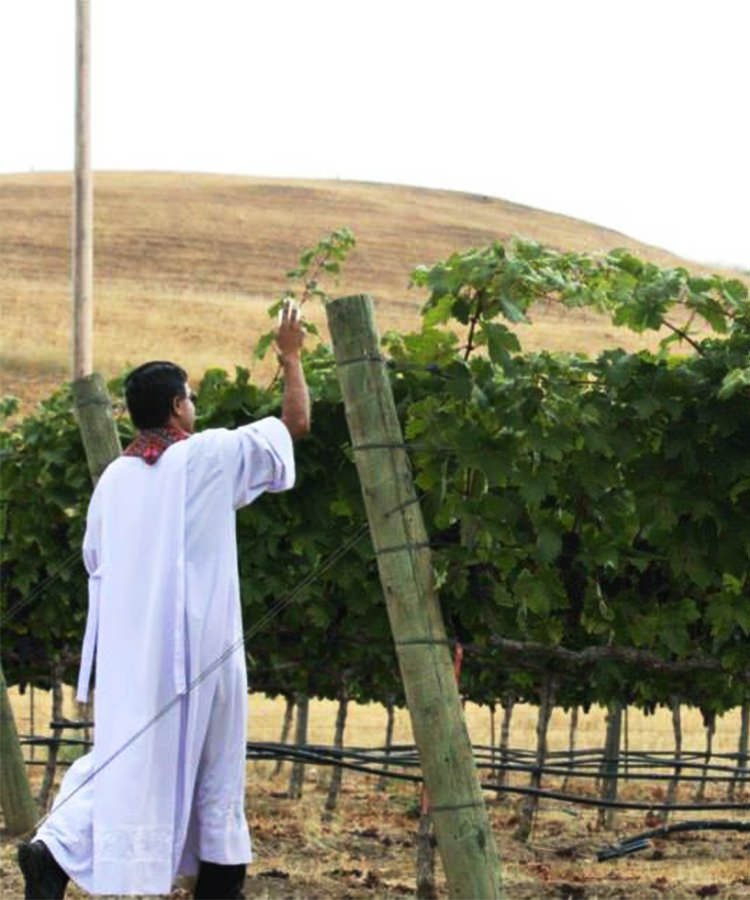The circle of life includes wine if you happen to be buried at one of the cemeteries of the Roman Catholic Diocese of Oakland, California.
Three East Bay Catholic cemeteries are home to vineyards that make table wine and wine for Mass for 24 nearby Catholic churches. The symbolism here is too real. Wine and Catholicism are inextricably linked — whether it’s Jesus turning water into wine, or drinking the blood of Christ in wine form during mass. On-site Catholic cemetery wine simply makes sense.
It all started in 2006 with a plan to plant some weed-free, irrigated turf over the Holy Sepulchre Cemetery. The cemetery grounds were in desperate need of refurbishing, but money was tight and the $50,000 per acre price tag wasn’t to be taken lightly. Not to mention the water needed to keep grass green in the parched, brown-grass California land. So why not use Northern California’s most renowned plant instead?
“A vineyard serves both an aesthetic purpose of beautifying the property, but more subtly it is a symbol of the Wedding at Cana and the wine that we share at communion,” Robert Seelig, one of the men involved in the decision to plant vines, writes for the Bishop’s Vineyard website.
There’s that, and the fact that putting in a vineyard only cost $17,000 per acre.
“What would we do if the grapes weren’t very good?” Seelig writes. “Well, how about making altar wine? You only take a sip of it at Mass, can it be all that bad? We all laughed and went along with the plan.”
Today, the winery produces around 600 cases per year. But this isn’t your every day altar wine. They grow chardonnay, pinot noir, primitivo, cabernet sauvignon, merlot, sangiovese, and zinfandel. Bishop’s Vineyard wines have won medals at the Grand Harvest Wine festival, the San Francisco Chronicle Wine Competition, and the Monterey International Wine Competition.
Perhaps cemeteries are ideal places for vineyards, or maybe the taste of the wine is more in line with what Bishop’s Vineyard writes on its website:
“Due to the Lord’s grace and the unwavering support of Oakland’s current Bishop, The Most Reverend Michael barber, what started as simple sacramental altar wine and parish giveaways quickly grew.”
